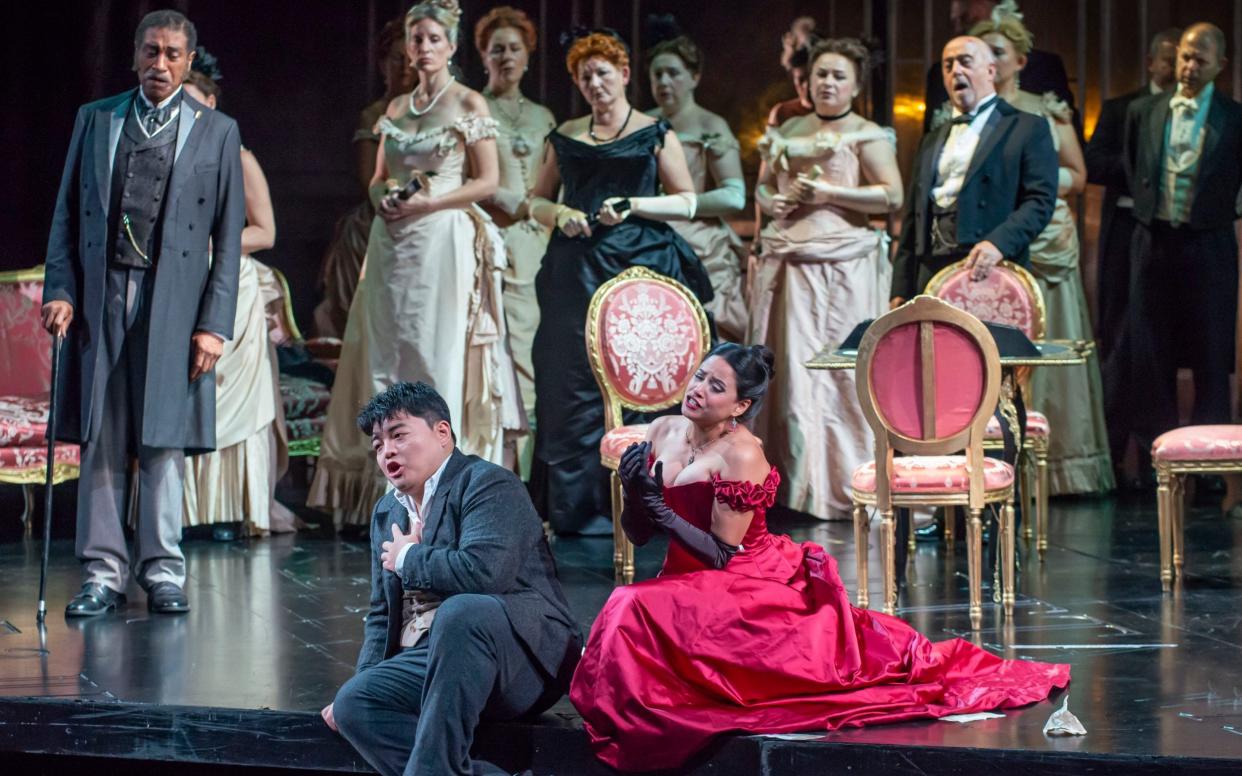Sir Simon Rattle and Katherine Jenkins condemn ‘dismantling’ of Welsh National Opera

Sir Simon Rattle and Katherine Jenkins are among almost 200 high-profile figures from the performing arts who have condemned the “dismantling” of Welsh National Opera (WNO).
In an open letter, they have warned that the nation’s largest arts employer “stands on a precipice” as a result of funding cuts imposed by Arts Council England.
The impact would be so devastating that the opera would be forced to make both the orchestra and chorus, “the beating heart of the company”, part-time, the letter said.

WNO has already had to scale back its performances following a double financial blow. Arts Council England cut its funding from £6.2 million to £4 million, a 35 per cent cut, for the 2023-26 period, while the Arts Council of Wales recently reduced its own annual investment in WNO to just over £4m, an 11.8 per cent cut.
The letter warned that the cuts were “clearly completely untenable”.
The signatories, who also include Gerald Davies, the Welsh rugby union legend, and the Right Rev Barry Morgan, the former Archbishop of Wales, called on politicians to show their support for the arts scene by backing an emergency funding package to save the “jewel in Wales’s crown”.
Without it, WNO will be unable to continue to deliver its programme of opera, education and community projects across Wales.

“WNO is the largest touring opera company in Europe, enjoying a global reputation for excellence, and representing ‘Brand Wales’ on the world’s stage,” the letter said.
“If WNO ceases to be a full-time company operating year-round it will be very hard to come back from that as the organisation becomes unable to retain its talent within Wales.
“What has painstakingly been built up over 80 years will be eroded and a vicious cycle will have begun.
“The potential dismantling of one of Wales’s finest national institutions would be devastating for the nation, for the organisation and its 222 employees, and for homegrown cultural excellence.
“The world-renowned quality of WNO’s output will be eroded, as the true ensemble nature of the company is undermined, with top musicians unable to sustain jobs in the orchestra and chorus on a part-time salary and no real freelance work in Wales with which to supplement their incomes.
“The cultural life of communities across Wales and England will be impoverished and diminished as a result.”

The letter, signed by 176 figures, has been sent to Lucy Frazer, the Culture Secretary, Vaughan Gething, the First Minister of Wales, Sir Keir Starmer, the Labour leader, and Thangam Debbonaire, the shadow culture secretary.
The signatories urged them to use their political clout to persuade their counterparts in Wales to open a dialogue with the UK Government.
Elizabeth Atherton, the soprano, who organised the letter, said: “This is a situation that simply cannot be ignored.
“The time is right for our leaders to signal that they mean what they say about the importance of the arts. If this moment is not grabbed, it will be the end of Wales’s largest arts organisation and employer as we know it.
“Politicians should not simply pay lip service to the arts in the lead-up to elections – they must prove to their electorate right now that they are serious about issues that significantly matter to many who vote for them.”
The letter has been signed by leading composers and conductors, several former WNO directors and directors of operas from New Zealand to S?o Paulo.
An online petition set up by the WNO orchestra in conjunction with the Musicians’ Union, calling for WNO to be retained as a full-time company, has received more than 8,000 signatures.
